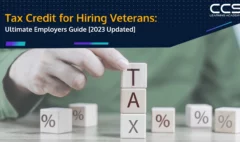Top 21 Benefits of Hiring Veterans: Why Veterans Make Great Employees
Military veterans have served our country through their time in the armed forces. Many veterans face challenges when transitioning back to civilian life after being deployed overseas and experiencing the intensity of military service. Corporations can step up and give back by reaching out to veterans and bringing them on board.
As corporate societies scale up, it becomes increasingly important to consider the wide-ranging benefits of bringing veterans on board. Hiring those who have served carries advantages not just for veterans themselves but for employers as well.
Veterans bring tremendous assets to the table, including leadership skills, teamwork, discipline, and the ability to operate under pressure. Companies should make efforts to recruit veterans and tap into their unique potential.
For companies looking to get ahead, veterans can provide the edge. From their accountability to their specialized abilities, vets stand out as driven, dependable employees. This article will dig into the top 21 reasons recruiting veterans pays off, what are the benefits of hiring veterans, and employer benefits for hiring disabled veterans.
- Overview of the Unique Skills and Experiences of Veterans
- Top 21 Benefits of Hiring Veterans
- 1. Adaptability: Ability to Handle Unpredictable Situations.
- 2. Leadership: Skills in Leadership and Management
- 3. Teamwork: Experience in Working in Teams
- 4. Problem-Solving Abilities: Proficiency in Strategic Thinking and Decision Making
- 5. Resilience: Ability to Overcome Challenges and Stressful Conditions
- 6. Tech-Savviness: Advanced Technical Skills
- 7. Reliability: Dependability and Strong Work Ethic
- 8. Quick Learners: Ability to Master New Tasks and Information Quickly.
- 9. Excellent Organizational Skills: Strong Capability in Project Management and Organization
- 10. Strong Communication Skills: Proficiency in Both Oral and Written Communication
- 11. Bilingualism or Multilingualism: Often Possess Multiple Language Fluencies.
- 12. Compliance & Integrity: High Standard of Conduct and Compliance
- 13. Confidence: High Level of Self-confidence
- 14. Global Outlook: Exposure to Various Cultures and Diverse Perspectives
- 15. Physical Health: Maintain a Good Level of Physical Health
- 16. Flexibility: Ability to Adapt to Different Roles and Tasks
- 17. Respect for Procedures: Aware of the Importance of Following Protocols
- 18. Ability to Work Under Pressure: Experience in Working in High-pressure Environments
- 19. Loyalty & Dedication: Commitment to the Mission and the Team
- 20. Security Conscious: Aware of the Importance of Security and Confidentiality
- 21. Government Incentives: Potential for Companies to Receive Financial Incentives for Hiring Veterans
- Conclusion
- FAQs
Overview of the Unique Skills and Experiences of Veterans
Veterans bring a wealth of skills and experiences to the table that set them apart from other job candidates. Their military service has equipped them to take on challenges, think on their feet, and work well under pressure. The training and leadership skills veterans receive set them up for success in civilian careers. Let’s delve into the unique skills and life experiences veterans gain during their time in the service.
Skills and Training Obtained by Veterans
Veterans bring a wealth of skills and real-world experiences to the workforce that make them invaluable team members and leaders. Through their military training and service, veterans pick up skills and develop personal qualities that set them apart.
To start with, members of the armed forces go through intensive training to carry out their military roles and responsibilities. For example, they may obtain medical skills as a combat medic or mechanical skills as a vehicle technician. Military training ingrains discipline and focus as service members carry out tasks to strict protocols and standards.
In addition to job-specific technical training, all service members receive training on core military skills like physical fitness, self-defense, teamwork, and leadership.
They learn to operate as a cohesive team and support their fellow unit members to accomplish objectives under challenging conditions. Leaders develop skills in strategizing, assessing risk, and making decisions under pressure.
Unique Life Experiences of Veterans
Beyond training, the experiences of military life and deployment forge strong character traits. Veterans develop resilience and adaptability while facing obstacles far from the comforts of home.
Their experiences give them perspective and maturity to handle stress and uncertainty. By facing life-or-death scenarios, they gain the courage to take calculated risks and persistence to see things through.
In civilian roles, veterans stand out for their advanced teamwork, leadership, discipline, and ability to perform under pressure. They bring cross-functional skills in areas like operations, project management, logistics, and technology. Veterans make loyal employees committed to getting the job done right.
They have a worldly perspective and rely on their resourcefulness and grit to overcome challenges. Their military experiences equip them with valuable capabilities to benefit any organization.
Top 21 Benefits of Hiring Veterans
When it comes to hiring, veterans bring a lot to the table that makes them valuable employees. In this section, we will lay out some of the top benefits companies can reap by bringing veterans on board.
By reading through the reasons below, you’ll get a sense of why veterans make sense for so many roles and how they can give your organization a competitive edge.
1. Adaptability: Ability to Handle Unpredictable Situations.
Many veterans develop a strong capacity to adapt and adjust to rapidly changing circumstances over the course of their military service. They are used to having the rug pulled out from under them when missions or schedules suddenly shift.
Veterans learn to roll with the punches when dealing with unexpected challenges. They don’t freak out when things don’t go according to plan.
In the military, service members often have to think on their feet and figure things out as they go along when original plans fall apart. They become accustomed to flying by the seat of their pants in fluid situations.
Veterans learn not to sweat the small stuff but instead to focus on the big-picture goals. They develop the skills to keep their cool under pressure when the heat is on.
Veterans know how to cut corners without cutting quality when timelines speed up. They have the discipline to buckle down and get things done when new priorities come crashing down. Veterans aren’t afraid to burn the midnight oil if that’s what it takes to deliver. They have persistence and grit to push through obstacles that may slow others down.
In essence, veterans have been trained to expect the unexpected. They adapt on the fly and take curveballs in stride. Veterans don’t let roadblocks stop them in their tracks – they find a way around or power on through.
Their ability to think on their feet, improvise, and adjust makes veterans incredibly agile and flexible in dynamic work environments.
2. Leadership: Skills in Leadership and Management
Veterans often step up and take charge when needed, as they are used to leading teams and taking responsibility. They have experience overseeing operations and sorting out problems that come up.
They know how to rally people together to accomplish goals and get things done. Veterans can lay out plans and map out strategies for success. They understand how to break down big projects into manageable parts and delegate tasks.
Veterans have insight into what motivates people and how to play to their strengths. They can tune into what’s going on with their team and pick up on problems before they spiral out of control.
Veterans have been through challenging circumstances, so they know how to keep their cool under pressure. They can pull people through tough times and motivate them to keep pushing forward. With their leadership abilities, veterans really stand out and bring a lot to the table.
3. Teamwork: Experience in Working in Teams
In many quarters of life, the need for teamwork is undeniably paramount, as it is a crucial ingredient for achieving success in both personal and professional spheres. The veterans are a clear exemplification of an entity bringing this concept to life.
Pulled together through shared hardship, veterans have a compelling history of leaning on each other, remaining reliable in the stormiest of conditions, and building trust through intensely interdependent roles. This spirit is developed out of the necessity to weather tough storms, an experience that subsequently helps forge and bond the team into a cohesive unit.
Working with veterans, one thing that’s bound to jump out is how they tend to put other team members first, often foregoing personal gains. Particularly in high-risk environments, veterans commonly step up to the plate, assuming responsibilities that go beyond their call of duty, always ready to hold down the fort. This selfless commitment to the common objective breeds a cohesive and productive working atmosphere.
Tasked to deliver under high tension, they know better than most how to sort things out with maximized efficiency. But when teams get to work, conflicts inevitably pop up. Yet for veterans, they’ve mastered the delicate art of smoothing things over and pushing past personal disagreements.
4. Problem-Solving Abilities: Proficiency in Strategic Thinking and Decision Making
Veterans, through their military training and battlefield experiences, learn to think on their feet and make critical decisions under highly stressful conditions. Their military backgrounds gear veterans up to think a few steps ahead, empowering them with foresight, strategic planning, and attention to detail – traits that are crucial in the business world.
Through years of attending to minute details and making split-second decisions that can bear life-altering consequences, they’ve developed a knack for sussing out problems of any magnitude and niping them in the bud well in time.
In the face of a problem, veterans can draw on their tactical knowledge and instinctive capabilities to carve out innovative solutions. They don’t shy away from rolling up their sleeves and taking on issues head-on, regardless of the complexity.
Their can-do spirit, coupled with their problem-solving prowess, ensures that they can come up with creative and effective solutions to extra-critical issues.
Companies aiming to shake things up and surge ahead in their respective industries should seriously consider roping in veterans. Besides their numerous traits and skills that can prop up a company’s growth, their exceptional problem-solving abilities could be the game-changer businesses need in today’s competitive market.
As they’ve proven time and again on the battlefield, in the heat of the fight, it is the veterans who can pull out all the stops to turn the trump cards and take an organization to soaring heights.
5. Resilience: Ability to Overcome Challenges and Stressful Conditions
Many companies are waking up to the immense value veterans can bring to the workforce. One of the standout benefits of hiring military veterans is the resilience veterans develop from their military service.
Veterans have been put through the wringer during their service. They have contended with grueling training, endured hardships while deployed, and faced the stress of combat. Through these crucibles, veterans have proven they can knuckle down and power through adversity.
This grit serves them well in civilian workplaces, which can also present their own challenges and periods of high stress.
In addition, the military instills high levels of discipline and commitment in veterans. Once they set their sights on achieving a goal, they don’t let up until it’s accomplished. Veterans bring this determination to the workforce and can usually be counted on to keep plugging away at tasks until they are buttoned up.
6. Tech-Savviness: Advanced Technical Skills
With rapidly advancing technology across all industries, businesses today need employees who can keep up and adapt. This is where veterans really stand out. Due to their modern military training, veterans bring highly valuable tech skills when transitioning into civilian roles.
Military service equips veterans with cutting-edge technical abilities that align well with workplace needs. They are trained on state-of-the-art systems and equipment, making them uniquely prepared for technology-driven business environments. Veterans pick up new software and digital platforms quickly, allowing them to hit the ground running.
Advanced training in cybersecurity also makes veterans adept at identifying and addressing potential vulnerabilities. With cyber threats on the rise, veterans’ skills in this area are highly sought-after. Their ability to detect risks and strengthen defenses will prove invaluable.
7. Reliability: Dependability and Strong Work Ethic
Veterans come with a honed skillset and bring tremendous assets to the table. Their training has instilled crucial qualities like discipline, teamwork, and performing under pressure. Veterans are used to knuckling down and getting the job done without needing constant hand-holding. They have learned to keep pushing forward and powering through challenges to accomplish the mission.
Veterans understand the chain of command and tend to take instruction well. They won’t buck the system or go off script. You can count on veterans to carry out directives and follow protocol. Their experience has taught them to align around organizational goals and work together to overcome obstacles.
Veterans won’t cut and run when things get tough. Their grit and determination enable them to persevere where others might throw in the towel. They’ve learned to tune out distractions and stay locked in on their objectives. Businesses can leverage this steadfast commitment to drive results.
8. Quick Learners: Ability to Master New Tasks and Information Quickly.
Having gone through intensive training in the military, veterans are conditioned to absorb instructions and master new tasks rapidly. Their military background has honed their ability to tune in and focus when learning something unfamiliar.
They don’t shy away from tackling new challenges head-on. Instead, they leverage their discipline and work ethic to delve into novel concepts and get up to speed swiftly.
In fast-paced work environments or roles requiring employees to constantly take on new duties, veterans tend to stand out. Their knack for swiftly picking up new information means they can take on additional responsibilities without missing a beat.
9. Excellent Organizational Skills: Strong Capability in Project Management and Organization
Veterans are often trained in establishing clear hierarchies, delegating responsibilities, and coordinating complex operations involving personnel, equipment, and information flow. Their military background instills organizational habits and skills that translate well to the workplace.
For example, veterans know how to break large projects down into manageable tasks and set realistic timelines. They are accustomed to juggling multiple priorities at once. Veterans also understand the chain of command and bring leadership abilities to the table.
Veterans have a knack for bringing order to chaos and getting things done efficiently. Hiring managers would do well to tap into the organizational strengths of veterans. Their experience managing workflows and complex systems pays dividends.
10. Strong Communication Skills: Proficiency in Both Oral and Written Communication
Many veterans gain valuable communication skills during their military service that make them an asset in the civilian workforce. They often have extensive practice conveying complex ideas and instructions clearly and concisely to diverse audiences.
The military emphasizes the importance of clear, organized writing in reports, memos, and correspondence. This results in veterans developing top-notch written communication abilities as well.
Their ability to distill complex information into coherent, succinct documents makes them ideally suited for preparing reports, proposals, manuals, and other workplace writing.
Hiring managers who bring veterans on board can rest assured knowing these employees have the oral and written communication competencies to interface effectively with management, colleagues, and clients.
11. Bilingualism or Multilingualism: Often Possess Multiple Language Fluencies.
Many veterans pick up valuable language skills during their service that can carry over into civilian jobs. It is common for service members to become fluent in more than one language, gaining multilingual capabilities that set them apart as job candidates.
Service members often get immersed in foreign languages when stationed overseas or working closely with local populations. They may need to use the local language regularly to carry out their duties and interact with community members.
The military provides language training to troops, equipping them with critical language and cultural skills for their assignments. Service members who go through intensive language instruction can come out fluent in languages like Arabic or Pashto.
Veterans can bring these foreign language skills gained from being immersed overseas or military training to jobs back home. Police departments, hospitals, and international companies value multilingual candidates who can interface with diverse communities and clients.
Veterans fluent in foreign languages have an edge when applying for jobs that require communication across languages and cultures.
12. Compliance & Integrity: High Standard of Conduct and Compliance
Veterans not only offer technical skills gained through their service but also bring an invaluable sense of integrity, commitment, and leadership.
While some civilians may brush aside company policies, veterans are more likely to follow them diligently. They understand the importance of working within established guidelines for the betterment of the team. Their military background emphasizes putting collective goals first before personal wants and needs.
Veterans have been tried and tested under pressure, so they keep their cool when problems arise on the job. Rather than freaking out, they calmly assess the situation, develop solutions and carry out the necessary response. Companies can count on veteran employees to handle workplace stressors maturely.
13. Confidence: High Level of Self-confidence
Many companies look to hire veterans due to the unique skills and experiences they bring to the workforce. One of the major benefits of hiring military veterans is the high level of confidence most veterans possess.
Having served in the military, veterans are used to facing tough situations and overcoming challenges. Rather than back down when things get difficult, veterans are likely to stand up to adversity.
Their self-confidence enables them to push through obstacles and solve problems hands-on. Veterans don’t scare easily and won’t be rattled when things don’t go according to plan.
14. Global Outlook: Exposure to Various Cultures and Diverse Perspectives
Veterans who have been deployed overseas have been immersed in and exposed to foreign cultures. Living and working side-by-side with people from diverse backgrounds gives veterans unique intercultural skills. They learn to tune in to different perspectives and ways of thinking.
Having navigated complex multinational environments, veterans often stand out for their cross-cultural communication abilities. They’ve picked up tips and tricks for bridging divides and bringing people together.
Their adaptability and openness allow veterans to think outside the box. They don’t just stick to the status quo or the usual way of doing things. They are comfortable pushing boundaries, challenging preconceived notions, and coming up with creative solutions. They can see old problems in new ways.
With their broad global outlook, veterans can help companies move forward and gain an edge.
15. Physical Health: Maintain a Good Level of Physical Health
One of the benefits of hiring veterans is their superb physical conditioning, ingrained through military service.
The armed forces instill rigorous physical training regimes from day one of basic training, toughening recruits up right off the bat. Soldiers, sailors, and airmen alike are put through their paces daily to ensure peak fitness levels are maintained across their service.
Rather than let their fitness slide, most vets continue exercise regimens that keep them in tip-top shape. Their bodies are accustomed to being pushed hard, and they carry on this conditioning even in civilian life.
Their energy and endurance can really give them an edge over less conditioned candidates. Their commitment to staying fit shows the kind of determination and follow-through veterans tend to demonstrate in all aspects of work.
16. Flexibility: Ability to Adapt to Different Roles and Tasks
Veterans have a unique skill set and experience that makes them extremely valuable hires. One of the key benefits veterans offer is flexibility.
Having served in the military, veterans are used to rapidly adapting to new situations and taking on different roles as needed. They are accustomed to shifting priorities and objectives and taking on new tasks or responsibilities with little runway.
Whereas some professionals who have specialized in a certain function may struggle if pulled out of their comfort zone, veterans have trained for fluidity. They can jump into action even when circumstances are uncertain or suboptimal. Rather than getting flustered, their military background primes them to take setbacks and ambiguity in stride.
17. Respect for Procedures: Aware of the Importance of Following Protocols
Veterans are used to strict protocol and chain of command structures from their time in service. They understand the significance of doing things “by the book” and not taking shortcuts.
Whereas some employees may chafe under structure and rules, veterans are conditioned to follow them. They recognize that protocols are in place for good reason – to ensure safety, quality, compliance, and efficiency. So, they carry out procedures systematically without the need for constant oversight.
This respect for protocols also makes veterans less resistant to new systems and reluctant to go off script. They are willing to stick to the game plan rather than trying to reinvent the wheel. With the right training, veterans reliably adhere to procedures once they are laid out.
18. Ability to Work Under Pressure: Experience in Working in High-pressure Environments
Veterans are used to operating in high-pressure environments where mistakes can carry grave consequences. They learn to keep their cool and carry out duties even when under intense stress.
Rather than cracking under pressure, veterans can thrive on it. They are conditioned to jump into action when the heat is on. Where others may fold or panic, veterans spring into focus. Many civilian jobs periodically ramp up demands and workloads. Veterans take these pressures in stride while maintaining productivity and morale.
Employers can count on veterans to lay out a plan of attack when pressure mounts. Their ability to operate under fire leads to greater resilience and performance at work.
19. Loyalty & Dedication: Commitment to the Mission and the Team
Every company desires committed team members who are reliable, committed and embody a deep-seated dedication to the mission, thereby pushing the company forward.
Veterans often stand out in this regard due to the momentous sense of duty instilled in them through their military service. They are steadfast in their loyalty, frequently placing the needs of the team and the mission above their personal desires.
Rather than merely clocking in and out, veterans go above and beyond in their work effort to ensure the tasks at hand are executed flawlessly. They don’t back away from challenges, and more often than not, they step up their roles, taking on extra responsibilities.
With determination etched into their persona, veterans stick to their tasks until they see them through to completion, whether it means burning the midnight oil or turning up early. With them on your team, you can count on jobs being rounded off effectively, with all loose ends tied up.
20. Security Conscious: Aware of the Importance of Security and Confidentiality
One of the key benefits former service members offer is being security conscious.
Veterans grow up in a culture that drums in the need to lock down sensitive material. They are trained to button up anything that could compromise a mission if it gets out.
Many have held security clearances, giving them hands-on experience safeguarding classified intel. Even those without specialized security roles absorb the mindset that loose lips sink ships.
In today’s workplace, security can’t be an afterthought. Their knack for vigilance, discretion, and threat detection makes them invaluable for shoring up defenses across an organization.
21. Government Incentives: Potential for Companies to Receive Financial Incentives for Hiring Veterans
Many companies are missing out on employer benefits for hiring disabled veterans. The government offers various incentives to employers who hire veterans in an effort to ease their transition to civilian life. Taking advantage of these can significantly bring down overhead costs.
The Work Opportunity Tax Credit (WOTC) allows businesses to get up to $9,600 back per veteran hired. There is a lengthy application process, but the payoff is worthwhile. The Special Employer Incentives (SEI) also provides thousands in subsidies for each veteran brought on board. Companies must keep up to date on which incentives are available and make sure to apply for them.
Hiring veterans is not just good for the public image or taking advantage of skills learned in the military. It can also save companies serious cash through government incentives if they follow through on the paperwork.
With the right strategy, businesses can take full benefit of programs aimed at encouraging veteran employment. The profits gained make the effort to hire and retain these workers more than worth it.
Conclusion
Hiring veterans is a win-win situation that companies should take advantage of. Veterans gain meaningful employment and are able to transition their military skills and experience into civilian roles. Companies gain dedicated, disciplined employees who bring leadership, teamwork, and specialized technical skills to the table.
Moreover, veterans understand the importance of hard work and perseverance. They are accustomed to working under pressure and facing challenges head-on. These soft skills enable veterans to thrive in civilian workplaces.
Looking to bring skilled Veterans on board? Our organization can pair you up with qualified candidates who are prepared to hit the ground running.
Since 1997, we’ve made it our mission to match talented Veterans with companies seeking dedicated employees. Our Veteran recruiters drill down to understand your business needs, then scout out candidates who have the right stuff to fill your open roles.
After completing our accelerated training program, Veterans emerge job-ready for positions like SQL BI Data Analyst, BI/Data Analyst, Report Analyst, SQL Analyst, and Data Analyst. We equip them with industry-specific skills and knowledge to dive right into these data-driven functions.
Don’t wait to connect your company with driven Veterans who want to contribute their talents. Reach out today to learn more about our recruiting and training programs that prepare Veterans for success. Let’s team up to put skilled Veterans on the fast track to meaningful civilian careers.
FAQs
1. Why should I consider hiring veterans?
Veterans bring a unique set of skills, discipline, and leadership qualities to the workplace. They are adaptable, quick learners, and have a strong work ethic.
2. What technical skills do veterans often possess?
Veterans often have technical skills in fields such as cybersecurity, IT, logistics, engineering, and more, thanks to their military training.
3. Do veterans work well in teams?
Yes, veterans are trained to work effectively in diverse teams, making them valuable contributors to collaborative work environments.
4. Are veterans dependable employees?
Yes, veterans are known for their reliability and commitment to their duties. They are accustomed to meeting deadlines and fulfilling responsibilities.
5. Do veterans have a strong work ethic?
Veterans have a strong work ethic instilled through their military service, making them dedicated and focused employees.
6. Are veterans adaptable to change?
Veterans are highly adaptable due to their experiences in various environments and situations, which allows them to handle workplace changes effectively.
7. How do veterans handle safety and security concerns in the workplace?
Veterans have a deep understanding of safety protocols and security measures, contributing to a safer work environment.
8. Are there incentives for hiring veterans?
Yes, many government programs and incentives encourage employers to hire veterans, offering benefits like tax credits and training resources.
9. How can I support veterans in the workplace?
Creating a veteran-friendly workplace includes providing mentorship, recognizing their contributions, and offering opportunities for professional development.
10. Do veterans make good leaders within organizations?
Absolutely, veterans’ leadership experience often positions them as excellent candidates for managerial and leadership roles.
11. Are veterans committed to personal growth and development?
Yes, veterans are dedicated to continuous improvement, often seeking opportunities for further education and skill development.
12. Can hiring veterans improve my company’s reputation?
Hiring veterans can enhance your company’s reputation as a socially responsible and supportive organization.
13. How do veterans handle diversity and inclusion in the workplace?
Veterans are trained to respect diversity and foster inclusion, making them great advocates for these values.
14. What’s the long-term impact of hiring veterans on a company’s success?
Hiring veterans can lead to increased productivity, lower turnover, and a more innovative and adaptable workforce, contributing to long-term success.







